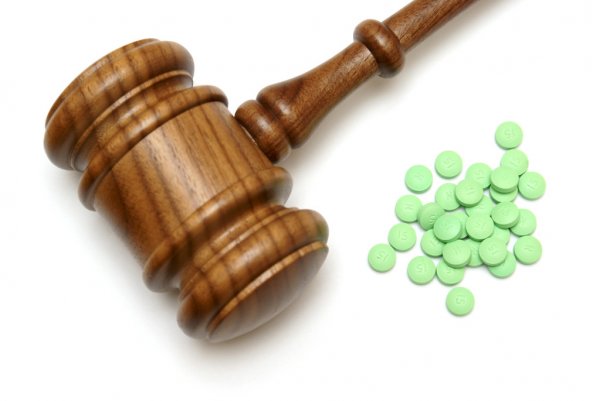It is no news for anybody that sometimes, the F.D.A. approves prescription or O.T.C. drugs only to recall them in a couple of years for their debilitating side effects. We are not talking about the dry mouth or sleepiness induced by your allergy medication. We talk about severe adverse reactions that compel patients to file lawsuits against pharmaceutical companies, doctors, pharmacists, or medication sellers. For some, it is hard to understand the difference between side effects and drug injuries. Today, we will discuss the conditions in which drug side reactions are adverse enough to justify an injury claim.
Side Effects vs. Drug Injuries: Where Do We Draw the Line?
When we discuss a medicine’s side effects, doctors, pharmacists, and the competent agencies refer to those mild adverse reactions that some people might experience, and some might not. The occurrence and intensity of a drug’s side effects depend on individual differences, including age, gender, body mass index, allergies, pre-existing conditions, other medication/vitamins/supplements one might be taking, etc.
The F.D.A. does not make a secret from the fact that almost all drugs we take – even herbal supplements – have side effects, ranging from dry eyes to upset stomachs. The plot thickens when a drug’s side effects lead to life-threatening consequences, such as the increased risk of stroke, heart attack, or cancer. The question, in this case, is whether you can sue a pharmaceutical company for such drug injuries even if the drug in question got the F.D.A. approval.
The answer is yes. Just because a medicine went through testing and received approval, it does not mean the manufacturer is off the hook. You can still move forward with a defective product liability claim.
The Grounds for Pursuing a Defective Product Liability Claim
In the practice of law, a patient or a group of patients have grounds for a lawsuit against a pharmaceutical company, a seller, doctors, hospitals, etc., in the following situations:
-
The manufacture of the product in question is defective;
-
A product comes with faulty design;
-
The drug in question fails to deliver complete, adequate, and understandable instructions and warnings.
If you can prove you incurred some drug injury due to poor manufacturing, design, marketing, or side effects, you have grounds for a lawsuit.
On the other hand, you might not have a case if:
-
Your doctor warned you about the potentially harmful side effects of a particular drug, and you still decided to take it;
-
A pharmacist warned you about potential adverse reactions of the drug before dispensing it, and you chose to take it anyway;
-
The drug’s packaging, instructions, label, and information papers offered enough warnings and directions, but you disregarded them.
As we all know, the F.D.A. or pharmaceutical companies voluntarily ban or recall medication when they have enough proof that they lead to drug-related injuries and life-threatening conditions, such was the case of the obesity drug Sibutramine back in 2010. Now, it is time to see what types of side effects can be grounds for a lawsuit.
What Medication Side Effects Can You Sue For?
As a patient taking prescription medication, you can hire a drug injury lawyer, not for a headache or nausea, but debilitating drug injuries and life-threatening conditions. You have grounds for a lawsuit against the manufacturer if you can provide proof that the medication you took was in any way dangerous or defectively designed. In the practice of law, no one can offer a complete list of medication side effects one can sue for, because, as we said above, prescription and over-the-counter drugs trigger adverse reactions differently from patient to patient. Historically speaking, however, here is the list of common drug injuries that people sued for and won.
-
Physical debilitating side effects. They include chronic abdominal or joint pain, arthritis, stunt growth, congenital disabilities, ulcer, kidney damage, hearing loss, etc.
-
Liver damage and failure. All drugs affect our livers, one way or the other. However, you have grounds for a lawsuit if the medicines you took did not offer sufficient warnings regarding potential liver damage or failure.
-
Heart and cardiovascular conditions. They include increased blood pressure, heart attack, blood clots, cardiovascular complications, congestive heart failure, etc.
-
Neurological conditions, strokes, brain blood clots, artery bursts, etc.
-
Psychological or psychiatry issues, including suicidal ideation, aggressiveness, depression, addiction, etc.
-
Other life-threatening conditions, such as cancer (although hard to prove), bone frailty and fractures, Stevens-Johnson Syndrome, Type-2 diabetes, etc.
-
Death. In this case, the family of the deceased patient that can hire a drug injury attorney and file a lawsuit against the manufacturer.
What Can You Expect from Such a Lawsuit?
If a patient or the family of a deceased patient can prove that a drug was defective, dishonestly marketed, or came with undisclosed/poorly disclosed adverse reactions that caused harm, you might receive compensation for non-economic and economic damages. In some unusual cases, juries also awarded punitive damages.
Drug injury lawsuits are incredibly complex, so it is always best to get the best attorneys for the job while preparing for a long and ugly fight.


